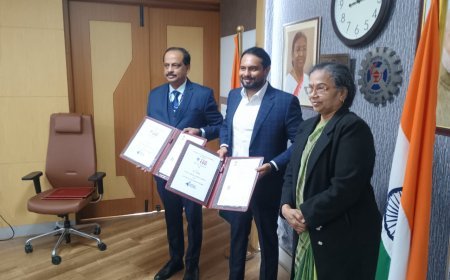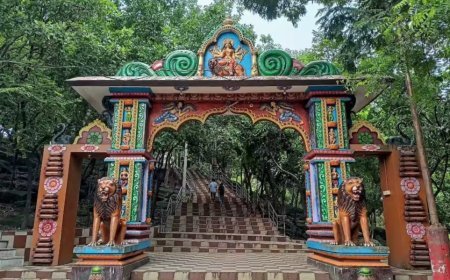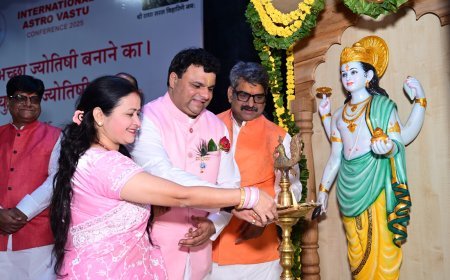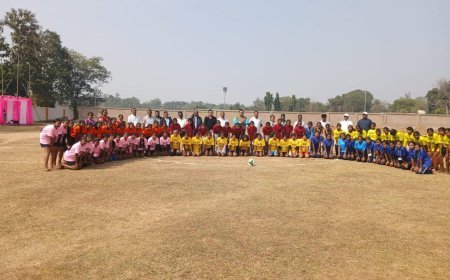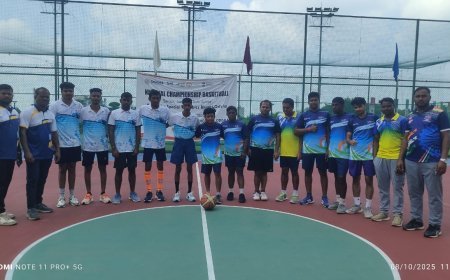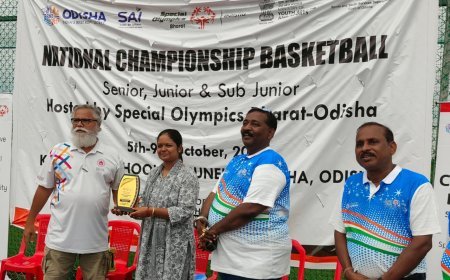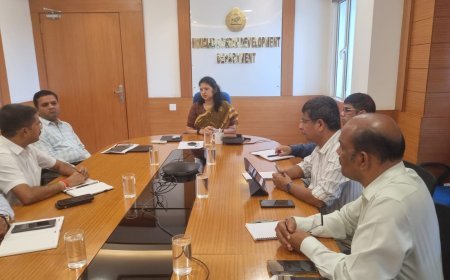30 PERCENT OF ODISHA'S SOIL DEGRADED: YOUTH, WOMEN ENTREPRENEURS, FARMERS UNITE FOR SOLUTIONS
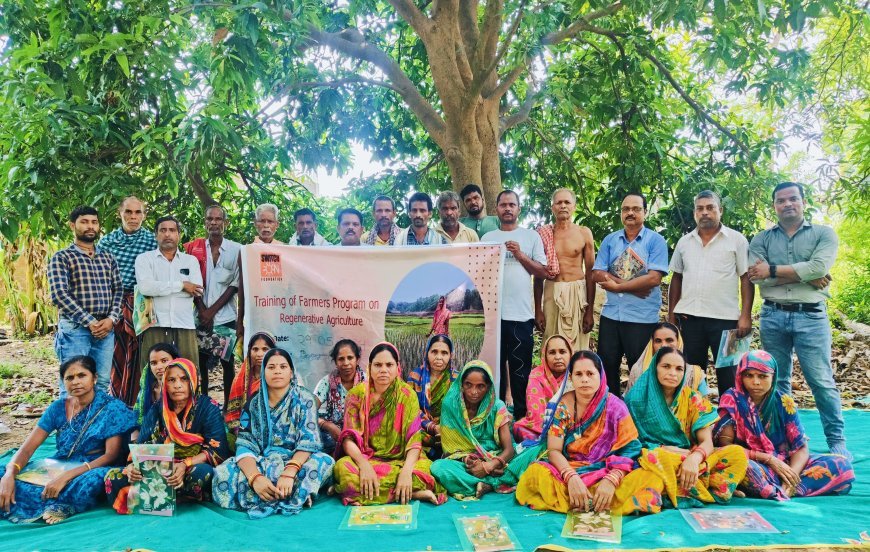
Bhubaneswar(06/06/2024): On World Environment Day, youth, women entrepreneurs, and farmers across Odisha came together to participate in workshops, training, and activities focused on land restoration, desertification, and drought resilience.
This collaborative effort aligns with this year’s World Environment Day theme and aims to address the severe environmental challenges plaguing the state. SwitchON Foundation has released a pivotal report detailing the severe environmental challenges facing Odisha.
According to the report, 30% of Odisha’s soil is degraded due to erosion, salinization, and nutrient depletion, with 5.4 million hectares of land affected by desertification.
The report also highlights that Odisha faces multifaceted land use and management challenges, including significant deforestation with a 9.0% reduction in forest cover and a 37.6% increase in built-up areas, indicating rapid urban expansion and habitat fragmentation.
Groundwater depletion remains a concern, particularly in semi-critical areas like Khordha and Bhubaneswar, driven by agricultural demands.
The fourfold increase in drought occurrences over the past decade has worsened agricultural distress, rural unemployment, and ecological issues such as temperature rise and wetland degradation. The Central Ground Water Board (CGWB) has identified several blocks as semi-critical due to high extraction rates, including Khordha, Bhubaneswar, Bolagarh, Talcher, Baliapal, Korei, Jharsuguda, Nayagarh, and Nuapada.
This trend indicates growing pressure on groundwater resources, primarily driven by agricultural demands.
In 2021, the state experienced one of the worst cases of drought in 20 years.
The state received only 661 millimetres of water as compared to the average of 935.8 millimetres.
The study revealed that Bhubaneshwar, the state's capital, experiences mean maximum temperatures of around 42°C, similar to the interior region of Sambalpur. Vinay Jaju, Managing Director of SwitchON Foundation said, "The findings of our latest report are a stark reminder of the urgent need for sustainable practices and land restoration efforts in Odisha.
With 30% of our soil degraded and groundwater levels declining at an alarming rate, it is imperative that we take immediate action.
Our initiatives, ranging from waste management drives to regenerative agriculture training are designed to tackle these challenges head-on.
By empowering communities and promoting sustainable practices, we aim to build a resilient and thriving ecosystem for future generations." In response to these alarming findings, SwitchON Foundation has undertaken a series of impactful initiatives aimed at restoring ecosystems, promoting sustainable agriculture, and fostering climate resilience.
Hundreds of environment enthusiasts including children, youth and women came forward for a mega dry waste collection drive across cities in Odisha like Bhubaneswar, Angul and Talcher.
Organized by SwitchON Foundation, the event culminated in the collection of around 250 Kgs of dry waste.
In Bhubaneswar, people participated in the waste collection drive in collaboration with partners like Society for Nature Education and Health Organization, Ruchika Social Service Organisation, Mystery of Mothers for collective climate action.
The waste collection drive aimed to raise awareness about the environmental impacts of improper waste disposal and the collective responsibility to maintain clean and sustainable surroundings.
Dry wastes like pens, paper, stationery, plastic bottles, wrappers, poly packs, broken toys, food packets, old clothes, and electronic devices were collected and submitted to designated recyclers or any local ragpickers for proper disposal and recycling. SwitchON also facilitated various competitions such as best-from-waste, poster-making, and drawing contests, along with plantation drives to foster a deeper connection to environmental issues and inspire positive action.
SwitchON also hosted a workshop on regenerative agriculture aimed at empowering communities to adopt sustainable practices engaging farmers and women Self-Help Groups (SHGs).
Suggested Ways for Ecosystem Restoration by SwitchON Foundation:Promote Regenerative Agriculture: Increase food production while preserving ecosystems through regenerative agricultural practices. Utilize Artificial Intelligence in Smart Farming: Implement AI techniques for crop selection, yield prediction, soil compatibility classification, and water management. Preserve the Soil: Maintain healthy, productive soil through organic and soil-friendly farming practices, including zero-tillage and strategies like mulching and drip irrigation. Protect Pollinators: Reduce air pollution, minimize the harmful effects of fertilizers and pesticides, and preserve wetlands, woodlands, and meadows. Revitalize Freshwater Ecosystems: Improve water quality, remove invasive species, replant native vegetation, and implement wastewater innovations to address sewage management and urban flooding. Renew Coastal Belts: Adopt frameworks to safeguard marine and coastal biodiversity, and restore blue ecosystems like mangroves and coral reefs. Reintroduce Nature to Urban Spaces: Enhance urban forests, preserve city canals and ponds, and create green areas to improve air quality and biodiversity. Benudhar Senapati, CEO of RSSO said, "By working together, we can achieve significant positive impact.
Our partnership with SwitchON Foundation has enabled us to reach a wider audience and drive meaningful change in the areas of land restoration and renewable energy." This collaborative effort demonstrates a strong community commitment to addressing Odisha’s environmental challenges and fostering a sustainable future.








